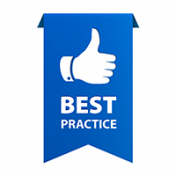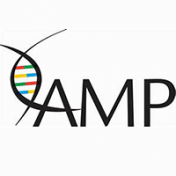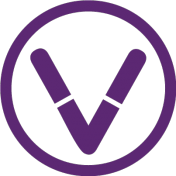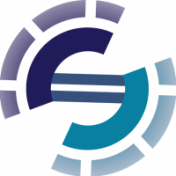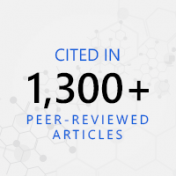VSClinical is our most recent product that allows users to evaluate variants according to the ACMG guidelines. As with any tertiary analysis, there is a need to implement best practices into your workflow and using VSClinical for the ACMG guidelines is no exception. That said, we have put together a Best Practices Blog Series, with the purpose of discussing some… Read more »
We just got back from three busy days at the Molecular Pathology (AMP) conference in friendly San Antonio, Texas. Keeping up the Golden Helix conference momentum for the year, we had 3-4 in-booth demonstrations a day covering our CNV calling, variant interpretation, and data warehousing products for NGS-based genetic tests. And in short, NGS based tests for cancer and germline… Read more »
VarSeq Stable 2.1.0 is Ready for Clinical Validation, See it in Action Next Week This week we are happy to see the general availability of VarSeq 2.1, the culmination of the last five months of work since we launched VSClinical. We have been blown away by the adoption of VSClinical, outpacing any previous product launch in terms of the pace… Read more »
We’ve packed our bags and we’re off to The Lone Star State to take part in the Association for Molecular Pathology Annual Meeting and Expo (AMP 2018)! As first-time attendees, we’re looking forward to integrating ourselves in the AMP community and showcasing our clinical stack, including VSClinical released earlier this year. Come on over and introduce yourself, you’ll find us… Read more »
Following a wonderful September with our 20th Anniversary and being awarded an NIH-SBIR Phase 2 Grant, October has been nothing short of exciting for us here at Golden Helix. We know that none of our success could happen without the continuous support all of you show us – so thank you to everyone who is a part of this awesome… Read more »
In the first two parts of this blog, we presented examples of how to leverage Warehouse-stored VSClinical and CNV assessment catalogs in the VarSeq project. Now we are going to explore the Warehouse interface a bit more and show how to query on stored variant data. To access Warehouse from VarSeq, click the V Connect icon located in the top… Read more »
Part 1 of this blog series was focused on new capabilities in Warehouse to store your CNV results. We explored some approaches of how to utilize assessment catalogs of cohort and known pathogenic events. What makes Warehouse so useful in this application is that the catalog is accessed from one central location and ensures every user is leveraging the same… Read more »
We recently hosted a webcast covering the value and application of VSWarehouse through VarSeq. Not only is VSWarehouse a solution for storing your NGS data in a central repository, but it also provides a means to enhance the tertiary analysis done in VarSeq. VSWarehouse will store all your sample/variant data but also stores your catalogs of pathogenic variants, clinical reports, and has the capability of filtering/querying on all your stored data quickly. In addition,… Read more »
This webcast generated some great questions! If you have any other questions for me that are not answered below, please feel free to ask those by emailing [email protected]. To what level does the Warehouse scale? We have tested multiple instances of Warehouse in-house and on the cloud and it scales incredibly well to tens of thousands of samples and 100s… Read more »
As we are beginning to welcome the crisp fall weather here in Montana, we cannot wait to make an escape to the warm, sunny weather of San Diego, CA for the American Society of Human Genetics Annual Meeting (ASHG 2018). We are looking forward to spending the week discussing with new and familiar faces within the genetics industry. If you… Read more »
Even though GRCh37 is currently the most widely used human genome assembly, GRCh38 provides a more complete human reference genome, offers more accurate genomic analysis, and includes centromere and mitochondrial information. However, we’re getting ahead of ourselves. Perhaps start with how we got here. The Human Genome Project started this all off with the world’s largest biological collaboration project in… Read more »
This webcast generated some great questions! If you have any other questions for me that are not answered below, please feel free to ask those by emailing [email protected]. Does VSClinical come with support for the new reference genome? Yes! We worked hard to make everything work in VSClinical regardless of your choice of reference genomes. The only caveat is that… Read more »
Creating Custom Scripts The first part of the Getting Started Guide for Sentieon described the steps for downloading the Sentieon tools, acquiring a license file, and running the example script/pipeline to generate the VCF and BAM files. This blog will cover some custom script changes users can make to add more efficiency when running through multiple samples at once. We… Read more »
It is our distinct pleasure to inform the GHI community that we have been awarded a Phase II SBIR Grant from the National Institutes of Health. As we are also preparing to celebrate our 20th Anniversary, these two events invoke a lot of excitement within our company and what lies ahead, for not GHI only, but the genetics field entirely…. Read more »
Sentieon; your swift secondary analysis solution. Golden Helix’s software solutions present a reputable and top-quality analysis of your NGS data. Looking at this process from a 30,000 ft view, the annotation and filtering of variants in your vcf files and discovery of CNVs based coverage data in the bam file make up the tertiary level portion of the analysis. However,… Read more »
Celebrating our 20th Anniversary on September 15th, we took some time to reflect on the last two decades in this industry. Two decades of learning, adaption, and growth on the business side as well as the personal side. Employees began their careers with us, made new friends and started their own families. These past 20 years are full of stories… Read more »
In my recent webcast, I demonstrated how VS-CNV users can detect high-quality copy number variant events. If you didn’t have a chance to join, you can view the recording below! This webcast generated a lot of great questions! If you have any other questions about the content covered in this webcast that is not answered below, please feel free to… Read more »
Our goal is to assist clients with their research through and through – whether in a clinical or academic environment. We are honored to have the ability to display this commitment in over 1,300 of our users’ publications in which our software is cited.
We would like to thank each and every one of you who participated in our t-shirt design competition. It was great to see the amount of creativity our community expressed! We are pleased to announce this year’s winners.
Genome-wide association studies (GWAS) are useful in genetics as they test for the association of a phenotype with common genetic variants. GWAS is “hypothesis-free” and does not require prior knowledge of a gene’s biological impact on a trait. The catch though is that this leads to analyzing hundreds to thousands of genome-wide array samples to elucidate single nucleotide polymorphisms (SNPs) associated with a specific phenotype.
